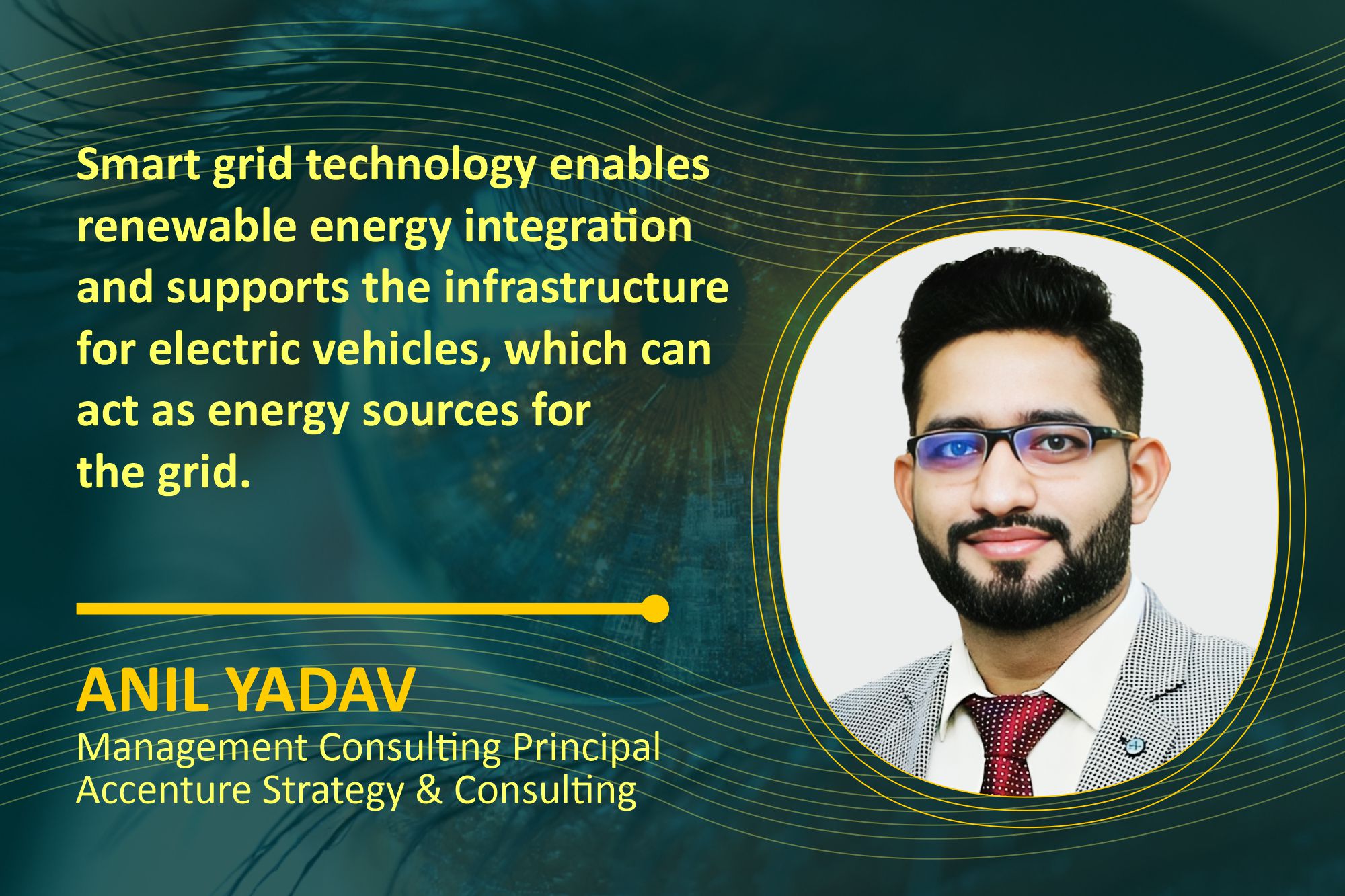Smart grid upgradation represents a fundamental shift in energy management
By EPR Magazine Editorial December 23, 2024 7:12 pm IST
By EPR Magazine Editorial December 23, 2024 7:12 pm IST

Smart grid technology has transformational potential. It enables renewable energy integration and supports the infrastructure for electric vehicles, which can act as energy sources for the grid.
Smart grid upgradation is highly significant in the current energy landscape, where rapid advancements in renewable energy sources and cutting-edge technologies like generative AI are transforming the industry. The critical question is why we need these upgrades and how they can reshape our energy management. Imagine a city where every home, business, and streetlight is connected to an intelligent network capable of predicting power needs, optimising energy usage, and maintaining reliability during extreme weather. While this vision might seem futuristic, it is precisely what smart grid technology promises to deliver.
A smart grid is an advanced system that digitalises power infrastructure and integrates real-time data, automation, and digital communication to optimise energy distribution and consumption. It represents a fundamental shift in energy management and lays the foundation for sustainable growth.
One of the key drivers for smart grid upgrades is the challenge of ageing infrastructure combined with rising power demands. Traditional grids were designed as simple systems where power flowed one way from a central source to consumers. Today, the energy landscape has evolved into a prosumer-centric model, where consumers act as producers, injecting energy from renewable sources like solar panels into the grid. While this shift supports sustainability goals, it also introduces challenges such as grid instability, intermittency of renewable energy, and increased vulnerability to cyber threats. Renewable energy, essential for achieving carbon neutrality goals, requires grid systems to manage its fluctuating nature. For instance, India committed to becoming a net-zero emissions country by 2070 and achieving 500 GW of renewable energy capacity by 2030, which necessitates integrating renewable sources seamlessly into the grid. This cannot be accomplished with outdated systems, making upgrades a pressing need.
Smart grid technology has transformational potential. It enables renewable energy integration and supports the infrastructure for electric vehicles, which can act as energy sources for the grid. Technologies such as advanced metering infrastructure (AMI), digital substations, and AI-enabled equipment are critical components of this transformation. For example, AMI provides precise energy usage data, while digital substations improve reliability and enable advanced analytics. AI and IoT technologies offer predictive maintenance, real-time insights, and automation, enhancing operational efficiency and reducing system losses. Furthermore, smart inverters and energy storage systems are vital for addressing the intermittency of renewable sources, ensuring stability and resilience in energy supply.
Despite these advancements, the journey toward a fully upgraded smart grid faces challenges. Past initiatives, such as the Restructured Accelerated Power Development and Reforms Programme (R-APDRP) in India, highlighted issues like poor data quality, which hindered the implementation of advanced applications such as fault localisation and voltage optimisation. However, current programmes like the Revamped Distribution Sector Scheme (RDSS) aim to address these shortcomings. RDSS has set ambitious targets, including achieving 100 percent smart metering in India by 2030. High-quality data, interoperable systems, and cybersecurity measures are crucial for realising the potential of smart grids. Additionally, skilled workforce development is necessary to effectively leverage technologies like AI and IoT, ensuring seamless operations.Smart grids open opportunities to expand energy access to tier-2 and tier-3 cities and foster public-private partnerships for investment and innovation. Upgrading to a smart grid system is essential for meeting future energy demands. By integrating renewable energy, adopting advanced technologies, and enhancing system resilience, smart grids provide a sustainable and efficient solution to today’s energy landscape challenges.
We use cookies to personalize your experience. By continuing to visit this website you agree to our Terms & Conditions, Privacy Policy and Cookie Policy.